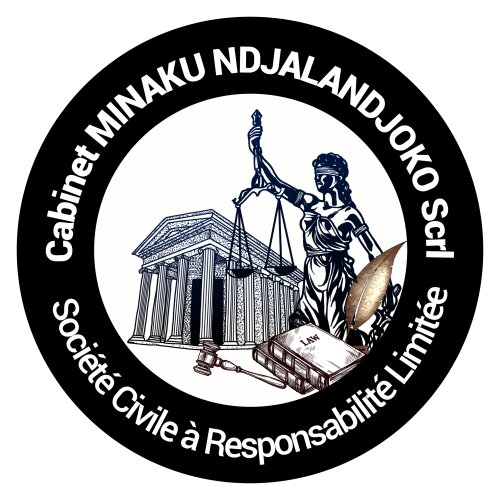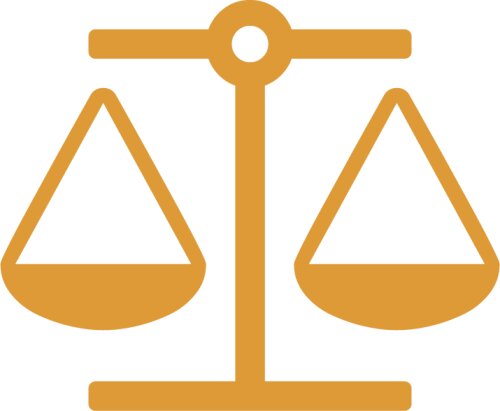Best Agriculture Lawyers in DR Congo
Share your needs with us, get contacted by law firms.
Free. Takes 2 min.
Or refine your search by selecting a city:
List of the best lawyers in DR Congo
About Agriculture Law in DR Congo
Agriculture is a central component of the Democratic Republic of Congo's economy, contributing significantly to the livelihoods of its population. The sector is characterized by small-scale subsistence farming and large-scale commercial operations, supported by the country's vast natural resources and ecological diversity. However, agricultural practice in DR Congo faces challenges including land rights issues, inadequate infrastructure, and evolving legislation. Agriculture law governs these activities, addressing elements such as land tenure, environmental regulation, trade, and labor practices.
Why You May Need a Lawyer
Individuals and businesses involved in agriculture may require legal assistance for various reasons. Common situations include disputes over land ownership or access, compliance with environmental regulations, contract negotiations for agricultural produce, and dealing with government policies and subsidies. A lawyer can also help navigate the complex tax obligations and financing opportunities available to farmers and agribusinesses. Legal representation ensures interests are protected and operations remain compliant with local laws.
Local Laws Overview
In DR Congo, key legal frameworks affecting agriculture include the Land Code, which addresses land ownership and tenure rights, and the Investment Code, which provides incentives for agricultural investments. Environmental laws regulate the use of natural resources and biodiversity conservation. Laws pertaining to labor impact employment practices in the sector, ensuring worker rights and safety. Understanding these laws is crucial for anyone engaged in agricultural ventures in the country.
Frequently Asked Questions
1. What are the most important laws affecting agriculture in DR Congo?
The Land Code, Investment Code, environmental regulations, and labor laws are crucial in shaping the agricultural landscape in DR Congo.
2. How can I obtain legal ownership of land for agricultural purposes?
Land ownership can be obtained through formal registration with government land authorities, following the requirements stipulated in the Land Code.
3. What are the environmental regulations I should be aware of?
Environmental laws in DR Congo include guidelines on water usage, deforestation prevention, and biodiversity protection, all of which must be adhered to by agricultural enterprises.
4. Do I need a license to operate an agricultural business?
Yes, specific licenses may be required for certain agricultural activities. It's advisable to consult a lawyer to understand the necessary permits and licenses.
5. What tax obligations do agricultural businesses have?
Agricultural businesses must comply with tax requirements as outlined by the national revenue authority, which may include income tax and VAT on certain products.
6. How can conflicts over land be resolved?
Land conflicts can be resolved through mediation, legal arbitration, or court proceedings, depending on the nature of the dispute.
7. Are there government subsidies available for farmers?
The government provides various subsidies and support programs for farmers, which can be accessed through application with the relevant agriculture departments.
8. Can I employ foreign workers for my farm?
Employing foreign workers is allowed but subject to labor laws, including obtaining necessary work permits and adhering to employment standards.
9. What legal steps should be taken if faced with an agricultural pest or disease outbreak?
Report the outbreak to agricultural authorities immediately and follow protocols as guided by local and international regulations, with legal support if needed.
10. What resources are available for understanding local agricultural laws?
Consulting with law firms specializing in agriculture, local agricultural institutions, and government agricultural departments can provide guidance and resources.
Additional Resources
For further assistance, consider reaching out to the Ministry of Agriculture in DR Congo, local agricultural cooperatives, or international organizations like the Food and Agriculture Organization (FAO). Legal aid groups and law schools in the region may also provide useful resources and advice.
Next Steps
If you need legal assistance in agriculture, start by identifying your specific legal needs. Gather all relevant documentation and consult a lawyer specializing in agricultural law who can provide tailored advice. Check the credentials and expertise of the lawyer or law firm before proceeding with legal representation or advice.
Lawzana helps you find the best lawyers and law firms in DR Congo through a curated and pre-screened list of qualified legal professionals. Our platform offers rankings and detailed profiles of attorneys and law firms, allowing you to compare based on practice areas, including Agriculture, experience, and client feedback.
Each profile includes a description of the firm's areas of practice, client reviews, team members and partners, year of establishment, spoken languages, office locations, contact information, social media presence, and any published articles or resources. Most firms on our platform speak English and are experienced in both local and international legal matters.
Get a quote from top-rated law firms in DR Congo — quickly, securely, and without unnecessary hassle.
Disclaimer:
The information provided on this page is for general informational purposes only and does not constitute legal advice. While we strive to ensure the accuracy and relevance of the content, legal information may change over time, and interpretations of the law can vary. You should always consult with a qualified legal professional for advice specific to your situation.
We disclaim all liability for actions taken or not taken based on the content of this page. If you believe any information is incorrect or outdated, please contact us, and we will review and update it where appropriate.
Browse agriculture law firms by city in DR Congo
Refine your search by selecting a city.













